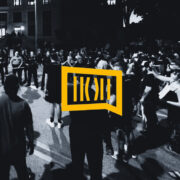
Significant human rights issues were observed in Montenegro, including severe restrictions on freedom of expression and media freedom, according to the U.S. State Department’s report.
The U.S. Department of State’s report states, among other things, that the Constitution guarantees freedom of expression, including for media representatives, and that the Government generally respected this right.
However, hate speech, verbal threats and insults directed at journalists and activists, targeting of critical media by officials, as well as unresolved attacks on journalists, threatened freedom of expression.
“The Agency for Electronic Media updated on July 3 its 2022 ban on broadcasting Russian state media, including Russia Today, Sputnik, and Rossiya 1, to implement the Government’s June 6 decision on full alignment with EU restrictive measures in response to Russia’s war against Ukraine,” the State Department noted.
They also stated that the Agency for Electronic Media (now the Agency for Audiovisual Media Services) called on all domestic audiovisual media service providers to suspend broadcasting or distribution of 20 specific Russian media outlets through any channel, including cable, satellite, IPTV, internet services, video-sharing platforms, or apps.
“Some observers, including the Atlantic Council of Montenegro’s Digital Forensic Center, noted that the authorities did not fully implement the decision, as those banned media outlets were still accessible from within the country,” the report states.
Physical Attacks, Closures, and Pressure
The State Department reported that there were no indications that the Government used violence against the media, but that officials continued targeting critical journalists and outlets. They stressed that unresolved attacks from previous years contributed to an atmosphere of intimidation.
They also added that on July 31, the High Court in Podgorica confirmed the indictment of the Special State Prosecutor’s Office against 14 individuals suspected of the 2018 attack on investigative journalist Olivera Lakić in Podgorica.
The group accused of the attack is also charged with creating a criminal organization and committing multiple crimes, including murder, illegal possession of weapons, and drug trafficking.
Censorship by Authorities, Criminal Groups, and Extremists
The U.S. Department of State report further notes that independent and opposition media claimed they were subjected to unfair treatment and economic pressure by state institutions.
“Low wages and political pressures encouraged self-censorship. Several columnists reported that during the year they had been subjected to threats due to their publicly expressed views,” it says.
It is also noted that journalists faced intimidation, threats, and physical assaults from unknown perpetrators due to reporting on politically, ethnically, and religiously sensitive issues, as well as corruption and smuggling.
The report also cites the incident of November 11, when the Basic State Prosecutor’s Office in Podgorica ordered 72-hour detention for businessman Zoran “Ćoćo” Bećirović, his son Luka Bećirović, and police officer Mladen Mijatović, allegedly Bećirović’s bodyguard, for verbally and physically assaulting journalist and crime editor at the daily Pobjeda, Ana Raičković, and members of her family near a fast-food restaurant in Podgorica on November 10.
“Bećirović, who is alleged to have ties to the former government led by the DPS, had previously been accused by journalists of making threats and insults,” it notes.
The incident prompted widespread condemnation on the political scene, from state officials, political parties, NGOs, and media associations.
“The Media Union of Montenegro stated that this was the 18th case of attacks or threats, including online threats, against journalists and media during the year. According to their data, 14 of these incidents were reported to the police and prosecutor’s office for further investigation and action,” the State Department report concludes.









